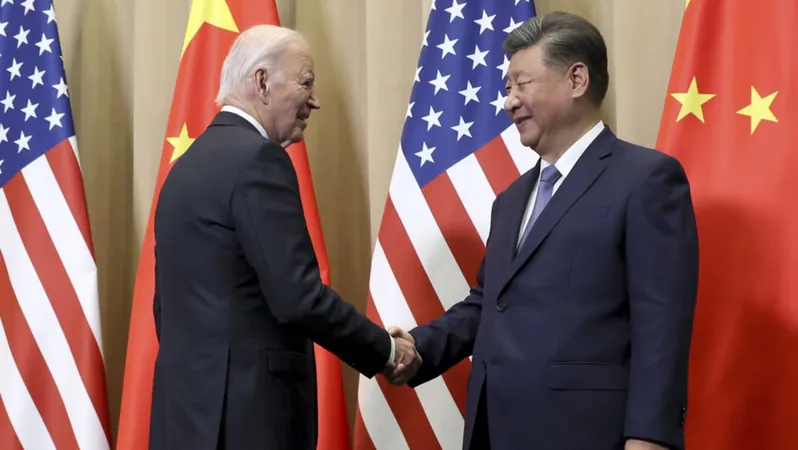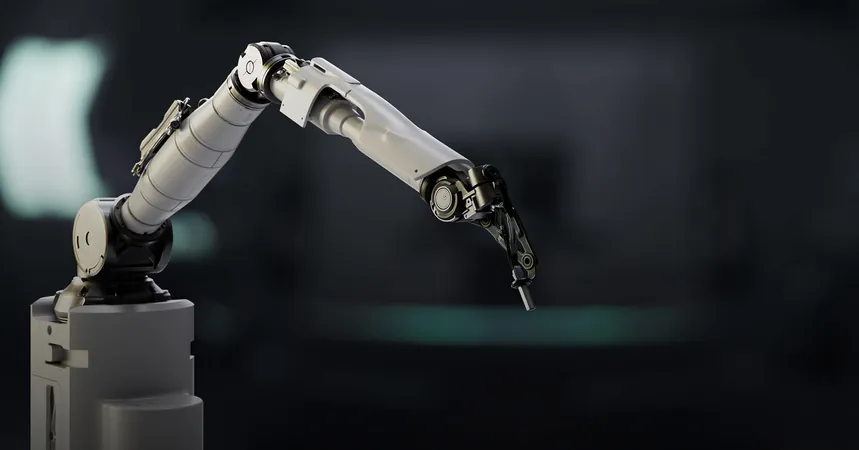
Trump’s Influence Casts a Shadow Over Biden and Xi's APEC Summit Meeting
2024-11-18
Author: Wei Ling
Trump’s Influence on Key Discussions
In a highly anticipated meeting during the Asia-Pacific Economic Cooperation (APEC) summit in Peru, President Joe Biden and Chinese President Xi Jinping found themselves navigating a complicated landscape largely shaped by the upcoming presidency of Donald Trump. This two-hour discussion, held at Xi's accommodation on November 18, highlighted significant concerns regarding the US-China relationship and the pressing issues each leader faces.
Key Issues and 'Red Lines'
During their conversation, Xi made it abundantly clear that for China, matters pertaining to Taiwan, democracy, human rights, and developmental rights are considered “red lines” that should not be crossed. He emphasized China’s expectations for cooperation with the next US administration, asserting his position while still attempting to establish avenues for dialogue.
Calls for Reassessment of Export Controls
Political analyst Philippe Le Corre noted that Xi hinted at the need for the United States to reevaluate its export control strategies, urging a more accommodating approach that would allow China to develop without excessive interference. This perspective reflects China's desire to manage its growth on its own terms, especially in the context of a potentially adversarial US administration.
Trump's Economic Policies and Their Impact
With Trump set to take office as the 47th President of the United States on January 20, anticipation surrounding his economic policies is rising. He has proposed a radical 60% tariff on imports from China as part of his 'America First' agenda. This approach creates an additional layer of tension, as experts believe that Trump will lean towards appointing figures known for their tough stance on China, such as Senator Marco Rubio and Representative Mike Waltz.
Preparing for Turbulent Trade Relations
The US-China trade relationship is expected to face turbulent waters. Robert Daly, director of the Wilson Center's Kissinger Institute, indicated that China is bracing for new tariffs and is strategizing to insulate its economy from potential sanctions—a move indicative of the broader economic decoupling between the two nations.
Nuclear Weapons and AI Oversight
Amid these tensions, there were significant takeaways from the Biden-Xi meeting. Notably, both leaders reached an agreement that human decision-makers, not artificial intelligence, would ultimately hold authority over nuclear weapons usage. While this may seem like an elementary principle, professionals in international relations viewed it as a vital step toward a more structured dialogue on nuclear issues, marking the first of its kind in US-China relations.
Xi's Presence in Peru
Beyond the summit, Xi Jinping was in Peru to inaugurate a critical new port in Chancay, underlining China's growing influence and soft power in Latin America. Analysts observed that this visit was not solely for APEC but was emblematic of China's ambitions in the Western Hemisphere, reinforcing its position in a region where influence is increasingly competitive.
A New Cold War?
As both nations grapple with their intertwined fates, it has become evident that they are on the brink of a new cold war, despite official avoidance of the term. The increasing complexity of competition in areas such as cyberspace and outer space is set to persist, setting the stage for a challenging future as Trump prepares to assume office.



 Brasil (PT)
Brasil (PT)
 Canada (EN)
Canada (EN)
 Chile (ES)
Chile (ES)
 España (ES)
España (ES)
 France (FR)
France (FR)
 Hong Kong (EN)
Hong Kong (EN)
 Italia (IT)
Italia (IT)
 日本 (JA)
日本 (JA)
 Magyarország (HU)
Magyarország (HU)
 Norge (NO)
Norge (NO)
 Polska (PL)
Polska (PL)
 Schweiz (DE)
Schweiz (DE)
 Singapore (EN)
Singapore (EN)
 Sverige (SV)
Sverige (SV)
 Suomi (FI)
Suomi (FI)
 Türkiye (TR)
Türkiye (TR)